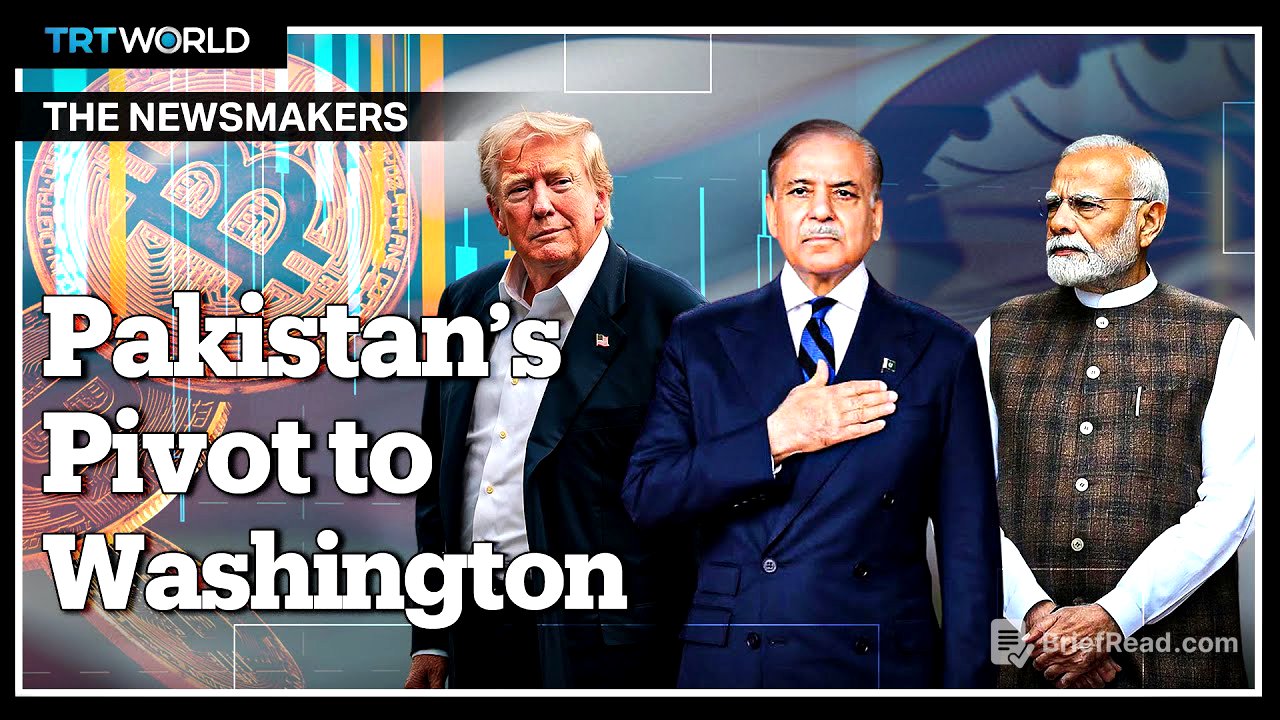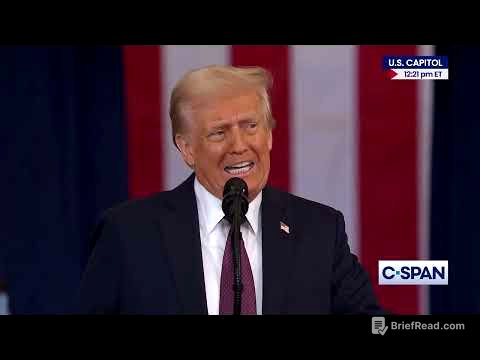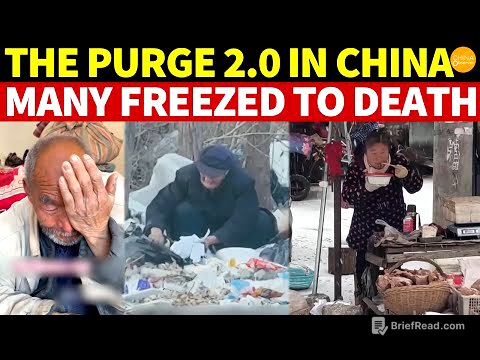TLDR;
This video analyzes the evolving relationship between the U.S. and Pakistan under the Trump administration, questioning whether it comes at the expense of India and China. It explores the transactional nature of U.S. foreign policy, potential economic gains for Pakistan, and the implications for regional power dynamics.
- The U.S. and Pakistan relations have grown closer, marked by high-level meetings and potential economic deals.
- This shift has raised concerns about the U.S. leveraging Pakistan to pressure India, and the impact on China's influence in the region.
- Experts debate the reliability and strategic implications of this evolving relationship, considering factors such as corruption, military empowerment, and geopolitical interests.
Introduction: Pakistan's Rising Favor with the US [0:00]
The video introduces the unexpected shift in US foreign relations under the current administration, where Pakistan has gained favor despite having significantly smaller trade volumes with the United States compared to India. This development raises questions about potential compromises in Pakistan's relationship with China and further tensions in the already strained ties between Delhi and Islamabad. The analysis aims to explore the potential rewards Pakistan might gain from strengthening its friendship with Washington and how this relationship has evolved since the Trump administration took office.
Dramatic Shift in US-Pakistan Relations [1:17]
The relationship between the U.S. and Pakistan has undergone a dramatic transformation. Once labeled a haven for terrorists by President Trump and considered one of the world's most dangerous nations by Joe Biden, Pakistan is now experiencing closer ties with the U.S. In May, amidst escalating tensions and a four-day war with India following a terror attack in Kashmir, Trump reportedly intervened to broker a ceasefire. Subsequently, Pakistan's army chief Azimun visited Washington, where he was hosted at the White House to discuss trade, economic growth, and regional tensions. Further strengthening ties, Washington and Islamabad reached a deal involving the development of Pakistan's oil reserves, and Trump's Middle East envoy's son, Zack Witkov, engaged with Pakistan's crypto council to promote the crypto industry. Meanwhile, India faces potential tariff hikes as punishment for purchasing Russian oil, highlighting a transactional approach by the Trump administration that contrasts with the long-term relationship-building efforts of the past 30 years.
Experts Debate the US-Pakistan Relationship [4:49]
The host, Andrea Sanki, brings in three experts to discuss the US-Pakistan relationship: Mtaz Ghoul, executive director of the Center for Research and Security Studies; William Lawrence, professor of international affairs and political science at American University; and Naim Khalibi, former Lieutenant General and former Pakistani Federal Minister for National Security. The discussion begins with an assessment of the current state of US-Pakistan relations, with experts noting the transactional nature of the relationship and the potential influence of President Trump's personal views. Concerns are raised about whether the US is using Pakistan as leverage against India, and the panel explores the strategic implications for Pakistan, particularly in relation to its ties with China.
Strategic Implications and Potential Risks for Pakistan [7:00]
General Khalibi believes that having a relationship and communication with the U.S. is better than not, even if it's transactional or intermittent, as long as it doesn't compromise Pakistan's closer relationships with other countries like China and India. He expresses that good relations between the U.S., Pakistan, and India could facilitate dialogue and issue resolution. William Lawrence suggests that the transactional nature of the relationship includes corrupt transactions, potentially influenced by financial deals. He also notes that Washington doesn't necessarily view the Pakistan-India-America triangle as a zero-sum game, but rather as two bilateral relationships with fluctuating dynamics. Lawrence attributes the souring of the US-India relationship to Trump's personalization of foreign policy and his attempts to pressure India through tariffs to achieve a Russia-Ukraine deal.
US Role in Peacemaking and Empowerment of Pakistan's Military [11:18]
William Lawrence downplays the US role in brokering peace between India and Pakistan, suggesting that the Trump administration exaggerated its involvement. Mtaz Ghoul expresses concern that the US is reinforcing the power of Pakistan's military, undermining efforts to establish the rule of law. General Odi clarifies that he is not in favor of army interference in politics but acknowledges that countries often deal with those who hold power to move agendas forward. He suggests that Trump's meetings with the army chief reflect an understanding of who matters most in Pakistan today, rather than an attempt to empower the military.
China's Role and US Concerns in the Region [16:10]
William Lawrence suggests that the US should be concerned about pushing India away and into the China camp, as India has been a key player in the Indo-Pacific strategy. He notes Pakistan's history of navigating its relationship with China and serving as a conduit for US dialogue with China. General Odi believes that America's confidence in India's ability to stand as a bulwark against China has diminished due to skirmishes between China and India, as well as the four-day war between Pakistan and India. He also points to India's involvement in BRICS and its import of goods from Russia as factors influencing the US perspective.
Economic Interests and Geopolitical Considerations [21:39]
Mtaz Ghoul notes that India has been forced to gravitate towards China, as evidenced by recent statements and agreements between the two countries. He suggests that Pakistan offered oil exploration and mineral rights as incentives to President Trump, who is more of a businessman than a conventional politician. Ghoul raises questions about the feasibility and benefits of US companies extracting rare earth minerals in Pakistan, given the time and investment required. He also suggests that the Trump administration's containment policy towards China has trumped other considerations, including concerns about democracy in Pakistan.








